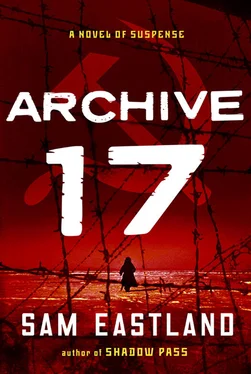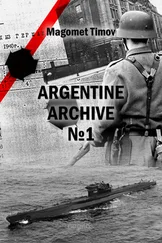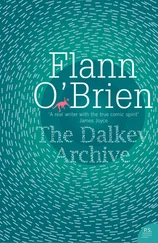Sam Eastland - Archive 17
Здесь есть возможность читать онлайн «Sam Eastland - Archive 17» весь текст электронной книги совершенно бесплатно (целиком полную версию без сокращений). В некоторых случаях можно слушать аудио, скачать через торрент в формате fb2 и присутствует краткое содержание. Жанр: Исторический детектив, на английском языке. Описание произведения, (предисловие) а так же отзывы посетителей доступны на портале библиотеки ЛибКат.
- Название:Archive 17
- Автор:
- Жанр:
- Год:неизвестен
- ISBN:нет данных
- Рейтинг книги:3 / 5. Голосов: 1
-
Избранное:Добавить в избранное
- Отзывы:
-
Ваша оценка:
- 60
- 1
- 2
- 3
- 4
- 5
Archive 17: краткое содержание, описание и аннотация
Предлагаем к чтению аннотацию, описание, краткое содержание или предисловие (зависит от того, что написал сам автор книги «Archive 17»). Если вы не нашли необходимую информацию о книге — напишите в комментариях, мы постараемся отыскать её.
Archive 17 — читать онлайн бесплатно полную книгу (весь текст) целиком
Ниже представлен текст книги, разбитый по страницам. Система сохранения места последней прочитанной страницы, позволяет с удобством читать онлайн бесплатно книгу «Archive 17», без необходимости каждый раз заново искать на чём Вы остановились. Поставьте закладку, и сможете в любой момент перейти на страницу, на которой закончили чтение.
Интервал:
Закладка:
A few minutes later, wearing his uniform, complete with polished boots, dress cap, and Tokarev automatic in a holster at his belt, Major Kirov set off to find Archive 17. Tucked under his arm was the file of Captain Ryabov.
In order to save time, he took a shortcut across the sprawling Bolotnia Market, where old women in muddy-hemmed dresses hawked jars of gooseberry jam and gap-toothed men with bloodhound eyes chanted the price of potatoes.
He stopped to ask directions from a young boy in a floppy, short-brimmed cap, who sat behind a table on which a pile of dead rabbits lay stretched as if stolen from their lives in the moment of leaping to freedom.
“Zelionka Street? There’s nothing but ghosts in those old buildings.”
“Nevertheless,” replied Kirov, “it is where I need to be.”
The boy pointed in the direction Kirov was headed.
Kirov nodded thanks, took one step, then stopped and turned to face the boy again. “Why aren’t you in school?” he asked.
The boy laughed. “And why are you looking for ghosts, Comrade Major of the NKVD?” With that, the boy picked up one of the dead rabbits and, taking hold of one paw, flapped it up and down to say good-bye.
Still clutching the file, Kirov arrived at Archive 17 of Internal Security just as the clerk was unlocking the door to a dingy, windowless, and flat-roofed building which stood between two empty warehouses.
The clerk was a small, aggressive-looking man with a thin mustache and narrow shoulders. He wore an overcoat with a scarf neatly tied around his neck and an old-fashioned round-topped hat, the likes of which Kirov had not seen since before the Revolution. Although the man was obviously aware of Kirov’s presence, he ignored the major while he unlocked the door. Finally, just before he disappeared inside, he turned and spoke to the major. “Wherever you think you are, I can assure you this is the wrong place.”
“Archive 17,” Kirov said quickly to avoid having the door shut in his face. The clerk seemed ready to barricade himself inside the building.
“You have come to the right place,” the man replied abruptly, “but these archives are reserved for Internal Security. A person like you can’t come in here.”
“I am Major Kirov, with Special Operations.”
“Oh,” muttered the clerk. “Then I suppose you can come in, after all. I am Professor Braninko, the guardian of Archive 17.” Reluctantly, he motioned for Kirov to enter.
Inside the archive, Kirov was startled to see, among the hundreds of wooden filing cabinets lining the walls, statues of soldiers in outdated military uniforms, as well as busts of men with gruff faces and wide, unseeing eyes. In the center of the room lay a huge severed hand, held out as if waiting for giant coins to be placed in its palm.
“This place used to be a sculpture studio,” Braninko explained. “Some of these have been here since the Revolution. When they moved me in here fifteen years ago, they couldn’t be bothered to clear out the statues.”
“Couldn’t you get rid of them yourself?”
Braninko laughed. “Young man, they are made of bronze! It would take a dozen men to lift any one of these statues. Besides, I have grown used to them.”
Kirov stopped before a larger-than-life statue of a man wearing the cocked hat of an admiral. “Do you know who they are?”
“No idea,” replied Braninko. “To me, these statues are like the bones of dinosaurs. They may once have ruled the earth, but all that remains of them now are harmless, empty shells.” He hung his overcoat upon the outstretched finger of the hand, exchanging it for a heavy gray shawl-collared sweater which fastened with wooden toggles up the front. “Of course, a day might come when the titans of our own generation are hidden from the light in dusty rooms. Until that time, these relics will be my companions.”
“It smells of smoke in here,” remarked Kirov.
“Yes. Those are the Okhrana files. During the Revolution, the headquarters of the Tsar’s Secret Police was burned by … by …” He seemed to have lost his train of thought.
“By Revolutionaries?” suggested Kirov, hoping to steer the man back on course.
“You can call them that if you want to!” blustered Braninko. “ Vandals are what I call them! Hoodlums! Destroying a place of records is inexcusable. Information does not care whose side it’s on. Information is what helps us to make sense of the world. It points us to the truth. Without it, we are at the mercy of every self-serving liar who comes along. Believe me, Comrade Major, when you find yourself talking to a man who keeps the truth from you and tells you it’s for your own good, you are dealing with a common criminal! Fortunately, they destroyed only a portion of the files. Those that could be salvaged were brought here to Archive 17, still smelling of smoke, I’m afraid.”
“I am looking for the file on Captain Isaac Ryabov, of the Imperial Cavalry. Is it possible that his documents survived the fire?”
“I’m afraid not, Major. Everything from the letter K onwards in the Okhrana files was destroyed. But I see you already have a file on this man.”
Kirov handed it over.
“Only one page?” asked Braninko, when he had looked inside the folder.
“There’s no information on Captain Ryabov from before the Revolution. I thought it might simply be missing from the file, and I was informed that I might find the information here.”
“As I said, Major, everything beyond the letter K went up in smoke.” Braninko continued to study the contents of the folder. “I see here that Captain Ryabov was transferred to Borodok.”
“Yes, that is correct.”
Braninko cleared his throat. “Major, I don’t know how familiar you are with the Gulag system, but I can tell you that Ryabov won’t be coming back from there.”
“You are quite right, Professor. Captain Ryabov has been murdered.”
“Ah.” Braninko went back to studying the sheet.
“Is there nothing you can do to help?”
The professor shook his head. “I’m sorry, Major.”
Kirov sighed with disappointment.
“Unless …” said Braninko.
“Unless what?”
“There are some other documents.” The professor spoke quietly, as if afraid the statues might be listening.
“Well, what are we waiting for? May I see them?”
“No. That’s the problem. You may not.”
“But why not?”
“There exists a set of papers known as the Blue File.”
“I have never heard of it.”
“Few people have. The contents of the file are secret. Even the existence of the file is classified information.”
“What’s so special about it?”
“The Blue File contains the names of spies who operated within the Okhrana.”
“But that doesn’t make any sense,” protested Kirov. “Back then all Russian spies operated within the Okhrana. They were part of the Tsar’s Secret Service. They answered to the Okhrana.”
“You misunderstand me, Comrade Major. The Blue File does not contain the names of Russian agents who spied for the Okhrana. These were agents who spied on the Okhrana.”
Kirov blinked. “You mean to tell me there were agents who spied on our own Secret Service?”
Braninko nodded.
“But the Secret Service controlled all spying operations!” protested Kirov. “Who would these agents answer to?”
“To the Tsar,” replied Braninko. “And only to the Tsar.”
Kirov was stunned. “And the Okhrana did not know about this?”
“That is correct. Even the great Chief Inspector Vassileyev was unaware of it.”
“Then why was the file discovered at Okhrana headquarters?”
“It wasn’t,” Braninko explained. “This file was found in a locked desk in the Tsar’s study. In the chaos of the Revolution, he forgot to dispose of the documents. Either that, or he could not bring himself to destroy them.”
Читать дальшеИнтервал:
Закладка:
Похожие книги на «Archive 17»
Представляем Вашему вниманию похожие книги на «Archive 17» списком для выбора. Мы отобрали схожую по названию и смыслу литературу в надежде предоставить читателям больше вариантов отыскать новые, интересные, ещё непрочитанные произведения.
Обсуждение, отзывы о книге «Archive 17» и просто собственные мнения читателей. Оставьте ваши комментарии, напишите, что Вы думаете о произведении, его смысле или главных героях. Укажите что конкретно понравилось, а что нет, и почему Вы так считаете.











